Understanding the Role of Failure in Athletic Development
20 February 2025
Failure. Just hearing the word might make you cringe a little, right? It’s not exactly a warm, fuzzy feeling. And in the world of sports, failure can be even tougher to swallow. Athletes spend hours, days, and years training, pushing their bodies and minds to the limit, all in pursuit of one thing: success. But what if I told you that failure is actually one of the most important ingredients in athletic development?
It might sound counterintuitive, but failure is a crucial part of every athlete’s journey. It’s the hidden force that shapes champions, the invisible hand that molds future victories. If you’re passionate about sports, whether you're an athlete, coach, or fan, understanding the role of failure in athletic development is a game-changer. Let’s dive in and unpack why failure is actually your best friend, not your worst enemy.
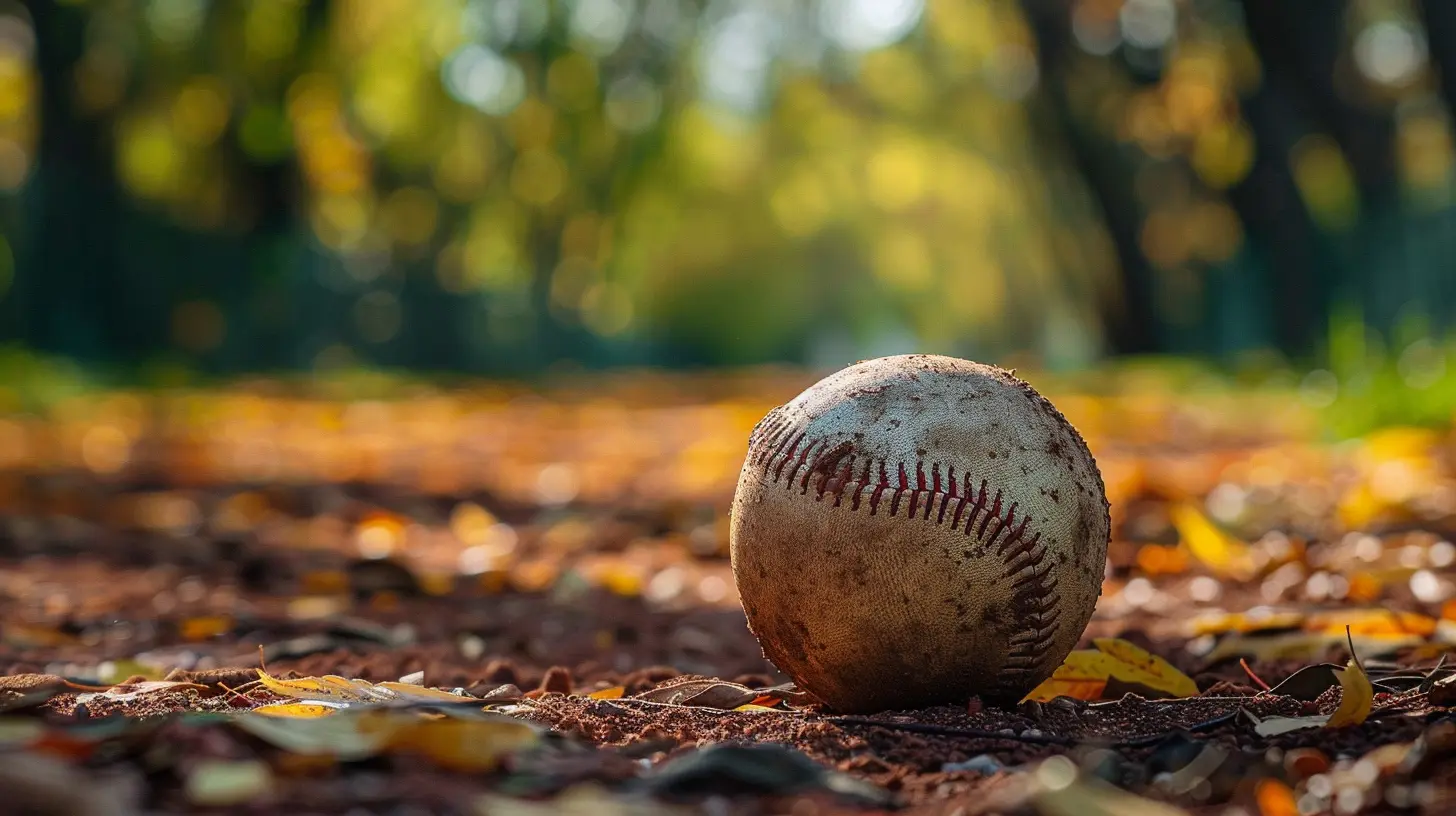
Why Failure is Inevitable in Sports
Let’s be real for a second—no one wins all the time. Even the greatest athletes of all time—Serena Williams, Michael Jordan, Tom Brady—they’ve all faced failure. You can train like a machine, have all the talent in the world, and still lose. In fact, failure is almost a guarantee in sports. It’s like gravity; it’s unavoidable.Think about it. In any competitive environment, there’s always going to be someone faster, stronger, or more skilled than you at some point. You can’t win every race, make every shot, or hit every target. And that’s okay. In fact, it’s necessary. Failure is part of the process, and it’s through failure that athletes learn, grow, and ultimately succeed.
The Competitive Nature of Sports
Sports are structured around competition. Whether it's a one-on-one tennis match or a team-based sport like soccer, there’s always a winner and, more importantly, a loser. No matter how much you prepare, there’s always a chance that things won’t go your way. Maybe you miss that last shot, or maybe the opposing team just has an incredible day.But here’s the key: losing doesn’t mean you’re a failure. It means you're human. What separates great athletes from the rest is their ability to use failure as a tool for growth.

Failure as a Learning Experience
You know that cliché saying, "You learn more from your losses than your wins"? Well, it’s true. Failure forces you to evaluate your weaknesses and identify areas for improvement. It gives you a mirror to face your shortcomings and provides you with the opportunity to come back stronger.Think of it this way: failure is like a coach. It provides feedback, shows you what went wrong, and offers you a roadmap for how to improve. Without failure, athletes would never know where they need to sharpen their skills or adjust their strategies.
Analyzing Mistakes
After a tough loss or a bad performance, many athletes and coaches sit down to analyze what went wrong. This can be tough—no one likes to relive their mistakes—but it’s a critical part of the learning process. Watching game footage, reviewing stats, and reflecting on decisions made during competition can provide valuable insights.For example, a tennis player who consistently hits the ball into the net might realize they need to work on their swing mechanics. A basketball player who misses free throws might recognize a flaw in their shooting form. These insights often only come to light after failure.
The Growth Mindset
When athletes embrace failure as a learning opportunity, they’re embodying what’s called a "growth mindset." This concept, popularized by psychologist Carol Dweck, suggests that individuals who believe their abilities can improve with effort are more likely to thrive in the face of adversity.Athletes with a growth mindset see failure not as a dead end but as a stepping stone. They understand that failure is temporary, and it’s part of the process of getting better. Instead of being crushed by a loss, they ask, "What can I learn from this?" and move forward.
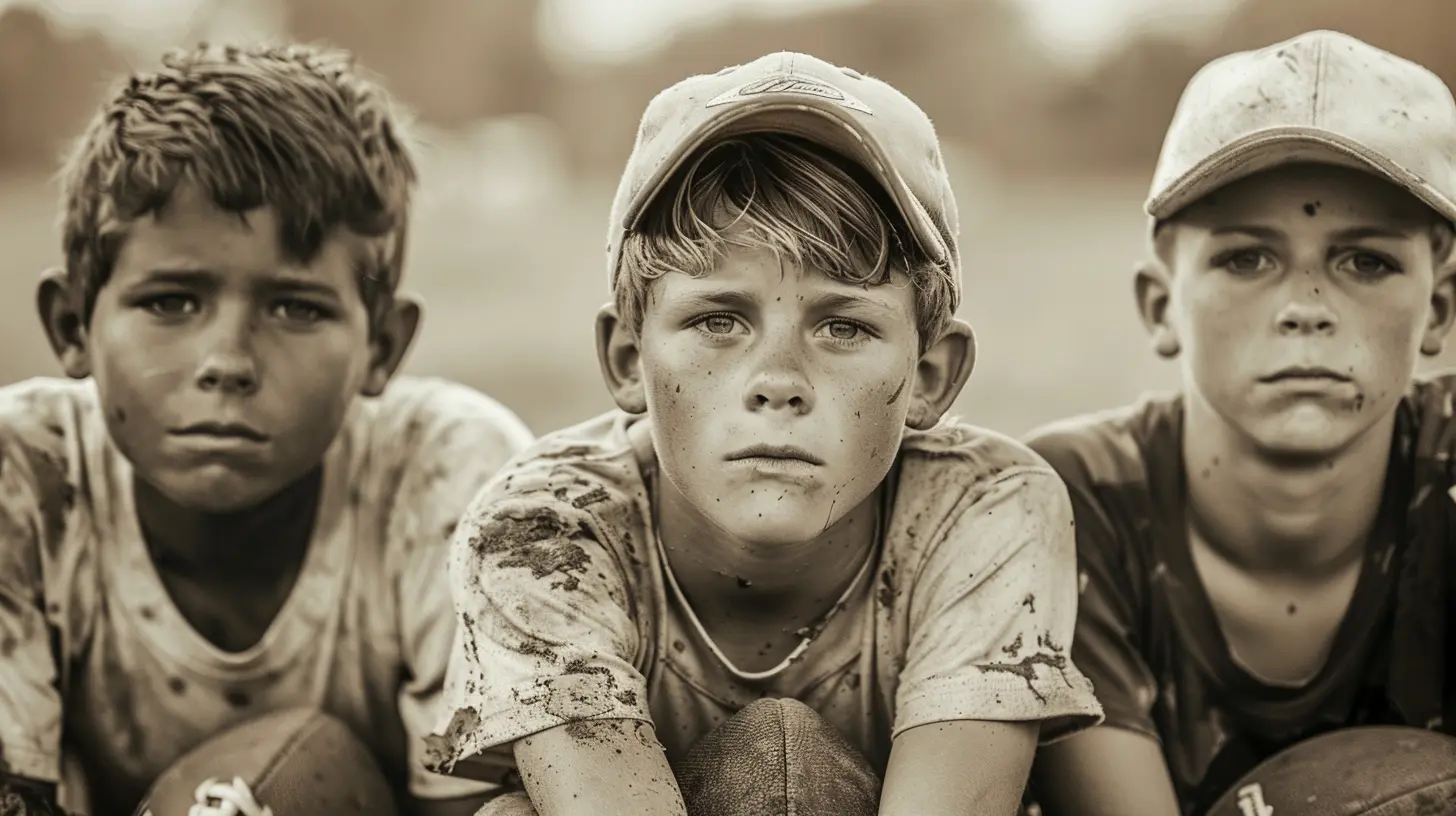
The Psychological Impact of Failure
Alright, let’s not sugarcoat it—failure hurts. It’s a blow to your ego, and it can shake your confidence. Athletes, particularly young ones or those new to a particular sport, can find failure demoralizing. After all, you’ve put in the work, you’ve sacrificed, and to come up short? That’s rough.But here’s the thing: the psychological impact of failure can either make or break an athlete. How an athlete responds to failure is what really determines their future success. Will they crumble under the pressure, or will they rise above it?
Building Mental Toughness
Failure is often the catalyst for building mental toughness. In sports, mental toughness is just as important—if not more so—than physical ability. It’s the ability to push through tough times, to stay focused under pressure, and to keep going when things aren’t going your way.Every time an athlete faces failure, they’re given an opportunity to strengthen their mental toughness. It’s like a muscle—the more you work it, the stronger it gets. The more an athlete experiences failure, the more they learn to cope with it, to bounce back, and to stay focused on their goals.
Overcoming Fear of Failure
One of the biggest psychological hurdles athletes face is the fear of failure. This fear can be paralyzing, leading to poor performance, hesitation, or even avoidance of competition altogether. Athletes who are afraid of failing often play it safe, which ironically increases their chances of failing.The good news? Failure itself is the best cure for the fear of failure. Sounds crazy, right? But when athletes experience failure and survive it, they realize it’s not the end of the world. They learn that failure is something they can handle, and this realization helps reduce their fear over time. It’s like getting a flu shot—the more you’re exposed to it, the more immune you become.

How Coaches Can Foster a Healthy Relationship with Failure
Coaches play a pivotal role in helping athletes navigate failure. A good coach doesn’t just teach skills and strategies—they help athletes develop a positive relationship with failure. Coaches who foster an environment where failure is seen as a learning tool, rather than something to be ashamed of, can unlock an athlete’s full potential.Encouraging Risk-Taking
One of the ways coaches can help athletes embrace failure is by encouraging them to take risks. Playing it safe might feel comfortable, but it’s not where growth happens. Athletes who are willing to take risks, even if it means failing, are the ones who ultimately improve the most.For example, a basketball coach might encourage a player to take more three-point shots, even if they miss several in a row. Over time, the player will develop the confidence and skill to become a better shooter, but only if they’re willing to risk missing those initial shots.
Positive Reinforcement
Coaches should also focus on positive reinforcement. When athletes experience failure, a coach’s response can make all the difference. Instead of criticizing or focusing on the mistakes, a coach should highlight what the athlete did well and emphasize the lessons learned from the failure.This doesn’t mean sugarcoating everything—athletes need to be held accountable for their mistakes. But it does mean framing failure in a way that encourages growth, rather than tearing down confidence.
The Role of Failure in Building Resilience
Resilience is the ability to bounce back from adversity, and in sports, it’s a skill that separates the good from the great. Failure is one of the primary ways athletes build resilience. Every time they experience a setback, they’re given a choice: give up, or keep going.Athletes who choose to keep going, who refuse to let failure define them, are the ones who build resilience. And resilience is what allows athletes to persevere through tough times, whether it’s a losing streak, an injury, or a slump in performance.
The Comeback Story
Who doesn’t love a good comeback story? We’re drawn to athletes who have overcome adversity because it speaks to the human spirit. Failure, in many ways, is the seed of the comeback story. It’s what makes the eventual victory so sweet.Think about athletes like Michael Jordan, who was cut from his high school basketball team, or Tom Brady, who was drafted 199th overall before becoming one of the greatest quarterbacks of all time. Their failures didn’t stop them—they fueled them.
Conclusion: Embracing Failure as Part of the Journey
At the end of the day, failure is an inevitable part of athletic development. It’s not something to be feared or avoided, but embraced. Failure teaches athletes valuable lessons, builds mental toughness, and fosters resilience. Athletes who learn to see failure as a stepping stone, rather than a roadblock, are the ones who go on to achieve greatness.So, the next time you or someone you know experiences failure in sports, remember this: it’s not the end. It’s just the beginning of something greater.
all images in this post were generated using AI tools
Category:
Sports PsychologyAuthor:

Ruben McCloud
Discussion
rate this article
16 comments
Mariana Spencer
Failure in sports is like that awkward family gathering you can’t escape—uncomfortable at the time, but full of lessons for future victories! Embrace those epic faceplants; they're just part of the training montage. Remember, even superheroes trip sometimes!
April 6, 2025 at 7:39 PM

Ruben McCloud
Absolutely! Embracing failure is essential for growth in sports. Those "awkward moments" teach resilience and prepare us for future success.
Liv Warner
Failure in sports is like a bad haircut: painful initially, but a crucial step to looking sharp in the end. Embrace the mishaps; they’re just practice for greatness!
March 26, 2025 at 4:09 AM

Ruben McCloud
Absolutely! Embracing failure is essential for growth in sports, much like overcoming a bad haircut leads to a better style. Each setback paves the way for future success.
Jax Bass
Failure fosters resilience and perseverance in athletes.
March 20, 2025 at 4:40 AM

Ruben McCloud
Absolutely! Embracing failure is crucial for athletes, as it builds resilience and fosters a mindset of perseverance, ultimately contributing to their growth and success.
Soryn McElhinney
Embrace failure; it's the stepping stone to greatness!
March 17, 2025 at 9:57 PM

Ruben McCloud
Absolutely! Embracing failure is essential for growth; it teaches resilience and drives athletes to improve and achieve greatness.
Francesca Monroe
Failure is a vital teacher in sports, shaping resilience and fueling growth; it transforms setbacks into stepping stones for future success.
March 17, 2025 at 2:04 PM

Ruben McCloud
Thank you! I completely agree—embracing failure is essential for building resilience and ultimately achieving success in sports.
Hudson McGovern
This article beautifully highlights how failure is a crucial component of athletic growth. Embracing setbacks fosters resilience, teaches valuable lessons, and ultimately shapes athletes into more skilled and mentally tough competitors. A must-read for aspiring athletes!
March 5, 2025 at 1:43 PM

Ruben McCloud
Thank you for your thoughtful comment! I'm glad you found the article insightful and inspiring for athletes. Embracing failure truly is key to growth and resilience.
Reagan Stewart
Failure is an essential component of athletic development. It fosters resilience, encourages learning, and sharpens focus. Embracing setbacks allows athletes to refine their skills and ultimately enhances their performance and growth in their respective sports.
March 5, 2025 at 4:21 AM

Ruben McCloud
Thank you for your insightful comment! I completely agree—embracing failure is crucial for athletes' growth and resilience. It's a vital part of the learning process that ultimately enhances their performance.
Owyn McIlroy
Failure fuels growth; embrace it.
March 3, 2025 at 9:44 PM

Ruben McCloud
Absolutely! Embracing failure is essential for athletes, as it provides valuable lessons and drives continuous improvement.
Troy Snyder
Failure is an essential teacher in athletic development. Embracing setbacks fosters resilience, encourages growth, and refines skills. Athletes who learn from their failures not only improve their performance but also build character, ultimately shaping them into more complete competitors both on and off the field.
March 2, 2025 at 5:02 AM

Ruben McCloud
Absolutely! Embracing failure is crucial for athletes, as it promotes resilience and character development, ultimately enhancing both their skills and performance.
Soliel Weber
This article insightfully highlights how failure serves as a crucial learning tool in athletic development. Embracing setbacks fosters resilience, adaptability, and skill enhancement, ultimately shaping well-rounded athletes capable of achieving long-term success.
February 28, 2025 at 8:38 PM

Ruben McCloud
Thank you for your thoughtful comment! I'm glad you found the article insightful and appreciate your emphasis on the importance of resilience in athletic development.
Eli McConkey
In the arena of dreams, failure's tender embrace, Shapes the heart of champions, igniting the chase. With each stumble, we rise, our spirits alight, For in every setback, we find strength to fight.
February 28, 2025 at 4:32 AM

Ruben McCloud
Thank you for capturing the essence of resilience in sports! Failure truly is a crucial catalyst for growth and success in athletic development.
Shania McCray
Failure is essential for growth in sports; it fosters resilience, adaptability, and ultimately, greater success.
February 25, 2025 at 1:13 PM

Ruben McCloud
Absolutely! Embracing failure is crucial in sports; it builds resilience and adaptability, paving the way for future successes.
Noelle Thornton
Failure is a vital teacher; it shapes resilience and fosters growth in every athlete’s journey.
February 23, 2025 at 11:25 AM

Ruben McCloud
Absolutely! Embracing failure can transform setbacks into powerful lessons, ultimately enhancing an athlete’s resilience and growth.
Christa McKinstry
Failure in sports fosters resilience, teaching athletes valuable lessons that can surpass the achievements of success.
February 22, 2025 at 4:07 AM

Ruben McCloud
Absolutely! Failure indeed cultivates resilience, offering athletes crucial lessons that often outweigh their victories. It’s a vital part of their growth and development.
Zanya Alexander
Failure is an invaluable teacher in sports, fostering resilience and honing skills. Embracing setbacks encourages athletes to analyze weaknesses, adapt strategies, and ultimately cultivate a growth mindset—essential for long-term success and personal development.
February 20, 2025 at 8:29 PM

Ruben McCloud
Absolutely! Failure is a crucial part of the learning process in sports, driving athletes to improve and develop resilience essential for long-term success.
Oriel Perry
Great article! Embracing failure truly shapes athletes’ journeys. It’s a vital part of growth that often gets overlooked. Thanks for highlighting this important perspective!
February 20, 2025 at 12:10 PM

Ruben McCloud
Thank you for your thoughtful comment! I'm glad you found the perspective on failure in athletic development valuable. Embracing these experiences is indeed essential for growth!
MORE POSTS

Virtual Sports: The Future of Competitive Gaming

The Rise of Cryptocurrency in Sports Betting: What You Need to Know

How to Balance Strength and Flexibility in Your Yoga Practice

The Physical Benefits of Playing Virtual Sports
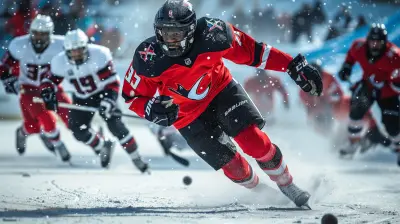
How Salary Caps Shape Player Contracts in Professional Sports
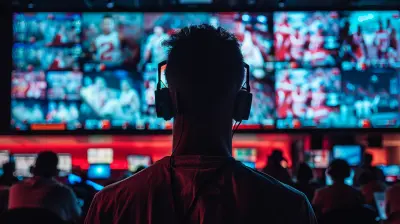
The Growing Popularity of Virtual Sports Betting

What You Need to Know About High-Altitude Sports Gear

How to Stay Disciplined in Sports Betting
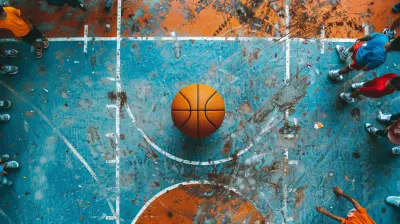
How Charity Sports Events Are Helping Build Stronger Communities

The Psychology of Winning: What Sets Champions Apart